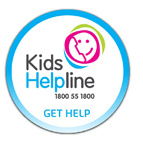Internet Safety: Parents
Unwanted ContactUnwanted contact
Online grooming and procuring of children over the internet is the illegal act of an adult or adults making online contact with a child under the age of 16 with the intention of facilitating a sexual relationship. More information is available from the Australian Federal Police which investigates suspected cases of online grooming.
Sexual solicitation is where someone is asked to engage in a sexual conversation or activity or to send a sexually explicit image or information.
Children and young people can communicate with people online who they don’t know, or have not met, in real life. While being in contact with new people can be exciting, the anonymity offered by the internet can allow these new contacts to cover their true identities. For example, someone who says they are a 10 year-old girl could actually be a 40 year-old man. This anonymity means that sexual solicitation and online grooming can occur online and are serious risks.
Risk of unwanted sexual contact
Children and young people may increase the risk of unwanted sexual contact in the following ways:
- Posting provocative photos and messages or using provocative screen names. Many children think they are being mature or funny when using sexually provocative language and images and don’t consider that some undesirable people may be attracted to their information.
- Posting personal information on publicly accessible websites. For example, if children post their full name, address or school/workplace on a social networking website without using the privacy controls, this can be seen by many people that they will not know. Many children aren’t aware of the risks in sharing their personal information publicly, so are happy to make all their information visible.
- Accepting contacts or ‘friends’ that they don’t know on social networking websites or gaming websites. By accepting these people they allow strangers to access their personal information and images. These contacts may be harmless, but they may also be looking to establish a relationship with the child with a sexual purpose in mind.
- Engaging in social networking or gaming sites designed for teens or adults. This can increase the likelihood of them being contacted by older teens or adults for sexual purposes.
Signs of unwanted sexual contact
Signs that a young person might be the target of online grooming may include:
- excessive use of the computer
- late night computer use
- secretive computer use
- changes in sexualised language and behaviour—either becoming more or less sexualised in language, behaviour and dress
- a change in the way they relate to friends or family.
These signs do not necessarily mean a young person is being groomed. They may be developmentally appropriate behaviours for young people, particularly teens, for whom their main connection to friends is the internet. They could also be signs that a young person is experiencing more general social issues.
Adults seeking to groom children for sexual contact encourage children to trust them and build rapport. They also often seek to separate them from their support systems including friends and family. Remember that even adults known to the family can engage in grooming.
Strategies used to groom children and young people may include flattering them, telling children and young people they are mature, using sexualised language or mature themes, offering young people work, encouraging private chats or phone calls or face-to-face meetings and asking the young person to provide photos of themselves or to use a webcam.
Where do I go for help?
If there is a threat to your child’s safety the police can help.
In a life-threatening and time-critical situation call Triple Zero (000).





